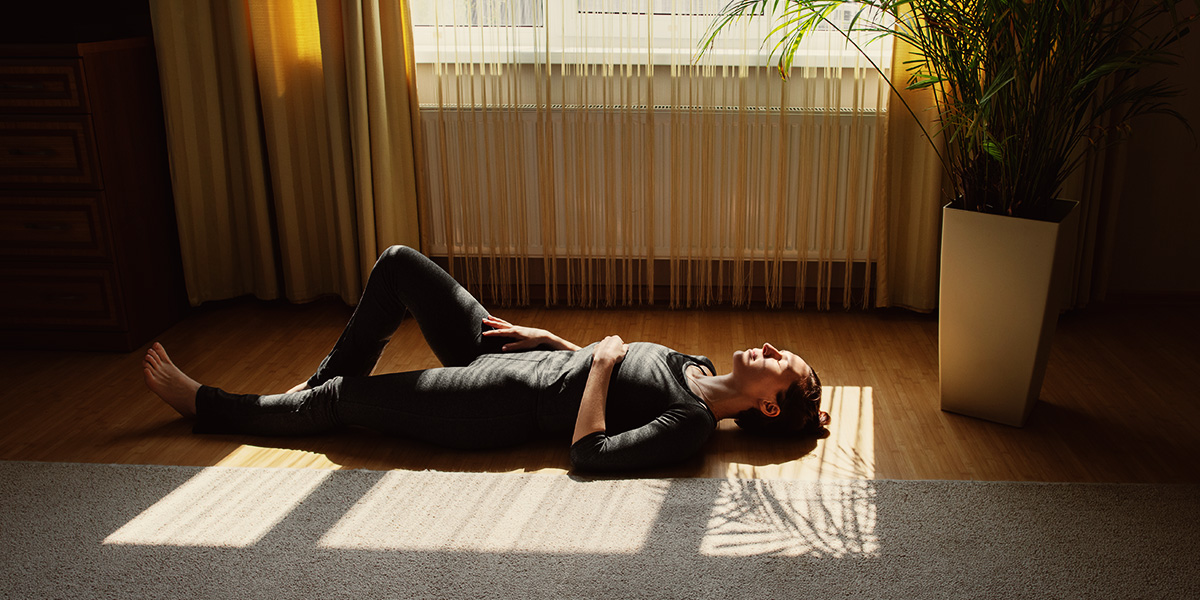Mission accomplished: You’ve just run your first 5K or 10K – that’s quite a feat. Few people are able to run that far. Now, how do you recover effectively to stay in top shape?
Menopause primer: Part 1
In this 2-part series, we look at the latest medical thinking on menopause treatment – and how a healthy lifestyle can help manage your symptoms.

Medically speaking, menopause is the moment when a woman hasn’t had her period for 12 consecutive months. Perimenopause is the time leading up to that when, for women typically in their late 40s or early 50s, their cycles become irregular due to unpredictable estrogen and progesterone production.
Every woman experiences this life stage differently. “While menopause – ovarian failure – is universal, symptoms vary,” says Dr. Shawna Johnston, an obstetrician/gynaecologist and associate professor in the Faculty of Medicine at Queen’s University Hospital in Kingston, Ont. She says that in Canada about 20% of menopausal women say they have no symptoms, and 70% to 80% say they experience at least 1 of the most common symptoms: hot flashes, sleep disturbances, joint pain, moodiness or irritability and vaginal dryness.
Two important solutions for managing menopause symptoms are hormone therapy, which we’ll look at here, and lifestyle changes, which we’ll explore in the next part of this 2-part series.
Hormone therapy (HT)
For relief of moderate to severe symptoms, Dr. Johnston recommends what was formerly known as hormone replacement therapy (HRT; it’s now referred to as hormone therapy, or HT). “It’s safe and effective if it’s taken by the right age group and for the right reasons,” she says.
You might have heard that HT is dangerous for anyone taking it. A lot of alarm bells rang when a study of 10,000 women, the Women’s Health Initiative, was released in 2004. But today’s medical consensus, as published and endorsed by an international panel of experts, is that HT is safe and highly effective if you are healthy and start it early enough; starting it later than age 60 raises the risk of cardiovascular disease.
“Yet the myth is still out there,” says Johnston. She explains that 2/3 of the participants in the Women’s Health Initiative study started HT when they were age 60-plus, and their cardiovascular risk increased. But the rest of the women in the study were 59 or younger, and for them HT was beneficial. Indeed, new analyses of that study have shown that age does make a big difference.
“While HT could worsen menopause symptoms if started too late, it has benefits if you start within 10 years of the beginning of menopause,” Dr. Johnston says. And guidelines from the Society of Obstetricians and Gynecologists of Canada state that, once started for menopause symptom control, HT is safe to take – with careful monitoring by your doctor – for as long as the symptoms exist. Speak to your doctor to determine if HT is right for you.
Help for hot flashes
For many women, one of the most uncomfortable symptoms of menopause is the infamous hot flash. According to the Mayo Clinic, hot flashes are sudden feelings of warmth that are usually most intense over the face, neck and chest. During a hot flash, you may experience:
- A flushed, blotchy appearance
- Rapid heartbeat
- Perspiration, mostly on your upper body
- Feeling chilled as the hot flash subsides
How often hot flashes occur varies from woman to woman, but usually the range is from 1 or 2 a day to 1 every hour. They're particularly common at night. Most women who experience hot flashes have them for more than a year, but they usually stop on their own within 4 to 5 years. (For suggestions on how you can mitigate hot flashes, see below.)
While HT may be a solution for many women, it’s no magic bullet: A key aspect to managing menopause symptoms is to make sure you have a healthy lifestyle, says Dr. Johnston. In Part 2 of this series, we’ll look at how exercise, smoking cessation and relaxation techniques can help you manage sleep disruptions and mood swings – and we’ll bust a big myth, too.
Homemade solutions for hot flashes
- Dress in light layers and remove/replace a layer as needed.
- Avoid spicy foods.
- Keep your bedroom cool all year round.
- Wear moisture-wicking clothes.
- Keep a small towel in your purse or by your bed to blot sweat.
- Drink cold water to reduce your core body temperature.


